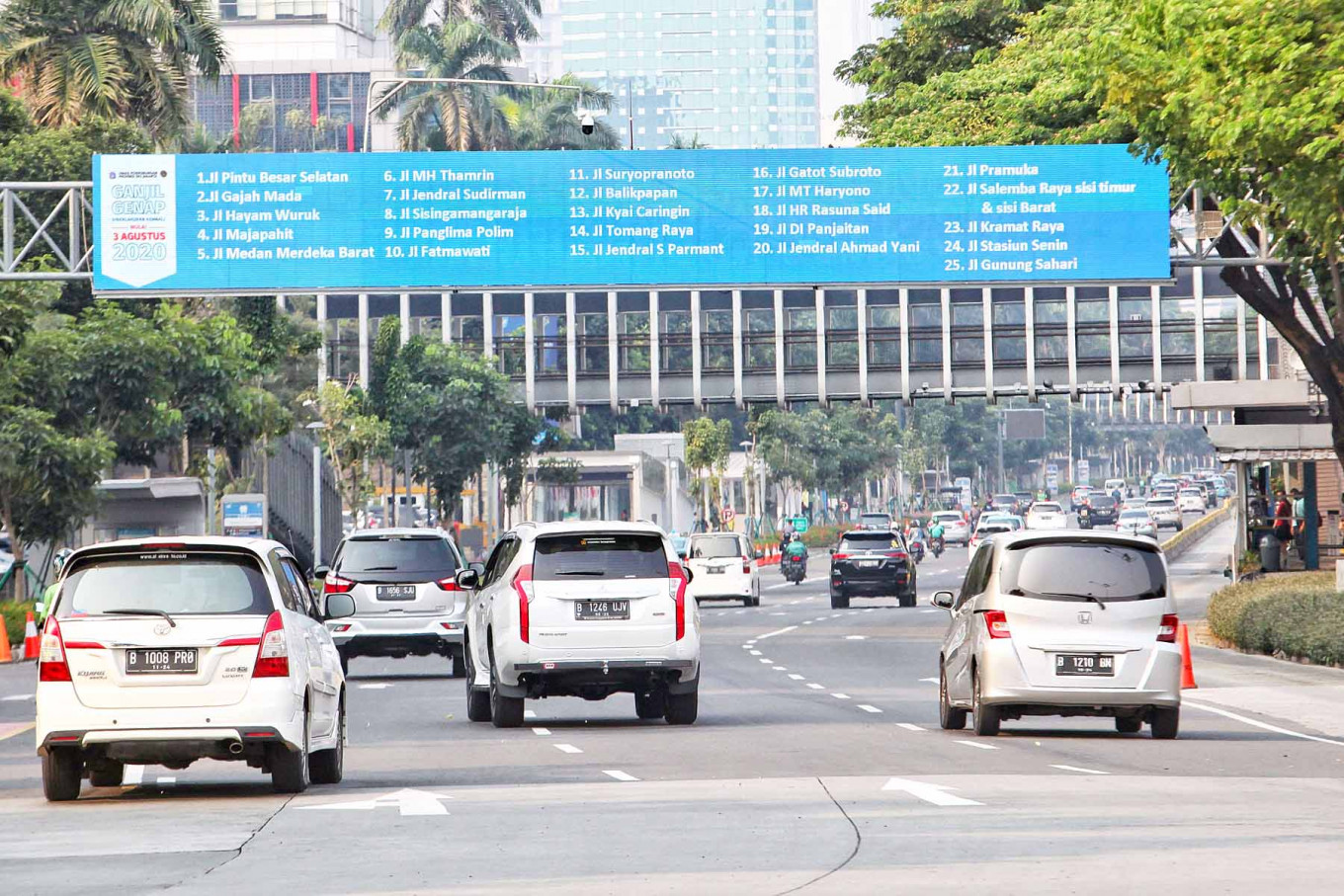Popular Reads
Top Results
Can't find what you're looking for?
View all search resultsPopular Reads
Top Results
Can't find what you're looking for?
View all search resultsRestricting private cars
Owning a second car, or buying a single electric one, is far beyond the means of most Jakartans, meaning they’ll have to resort to public transportation as the city’s odd-even license plate policy comes back into force.
Change text size
Gift Premium Articles
to Anyone
T
he government has lifted most COVID-19 restrictions as the pandemic seems to be under control, even after the spike in national travel during the Idul Fitri holidays.
Naturally, this has led to a buildup of traffic, especially in Jakarta. In response, the city administration has reinstated the odd-even traffic policy and will start enforcing it on Monday.
The policy was significantly relaxed at the height of the pandemic, but now the city will extend the zones of enforcement from the current 13 stretches of road to 25. This covers most major thoroughfares in the capital.
We will not see any traffic police officers on the existing restricted routes because the electronic traffic law enforcement system is already in place. The officers will instead be guarding the entrances to the newly regulated routes.
Jakarta residents with sufficient means can simply buy another car with a license plate of a different parity to complement the one they already have, allowing them the convenience of using one of their cars each day.
Another option would be to go electric, as electric vehicles are exempt from the restrictions. But owning a second car, or buying a single electric one, is far beyond the means of most Jakartans, meaning they’ll have to resort to public transportation.
Therefore, for the sake of the city, it is the government’s responsibility to provide reliable, affordable and sustainable public transportation.
Thankfully, the Transjakarta busway system covers most of the city, with a far wider network than when it began back in 2004. There are also supplemental services, including Mikrotrans, Minitrans, Metrotrans and the premium Royaltrans, to allow, in theory, for a nearly door-to-door public transit journey.
Before the pandemic restrictions, the bus system transported more than 20 million passengers per month and reached the milestone of 1 million passengers per day on Feb. 4, 2020.
The city administration has also revamped the notorious angkot or mikrolet (public minivan) network and has reorganized the fleet into a more reliable transportation service under the Miktortrans brand, penetrating most residential areas.
Another advancement is the development of integrated stops for two or more modes of transportation, such as with the city-owned Jakarta MRT and state-owned Greater Jakarta Commuter Line urban railway, as well as the planned state-owned Greater Jakarta LRT.
When building a physical joint stop is not possible, a bus service often links a Commuter Line or MRT station with the nearest Transjakarta bus stop, bus terminals or other destinations.
Although the main line is limited to Jakarta, several feeder lines link the outermost busway stops with neighboring cities in the Greater Jakarta area. The cross-border service is important because many people who work in Jakarta live in the satellite cities, while a considerable number of Jakartans work across the border. This connectivity works hand-in-hand with the odd-even traffic policy.
Hopefully, we will not need the odd-even policy or other restrictions like it once the public transportation system covers the four corners of Jakarta and reaches beyond the border to neighboring cities.











